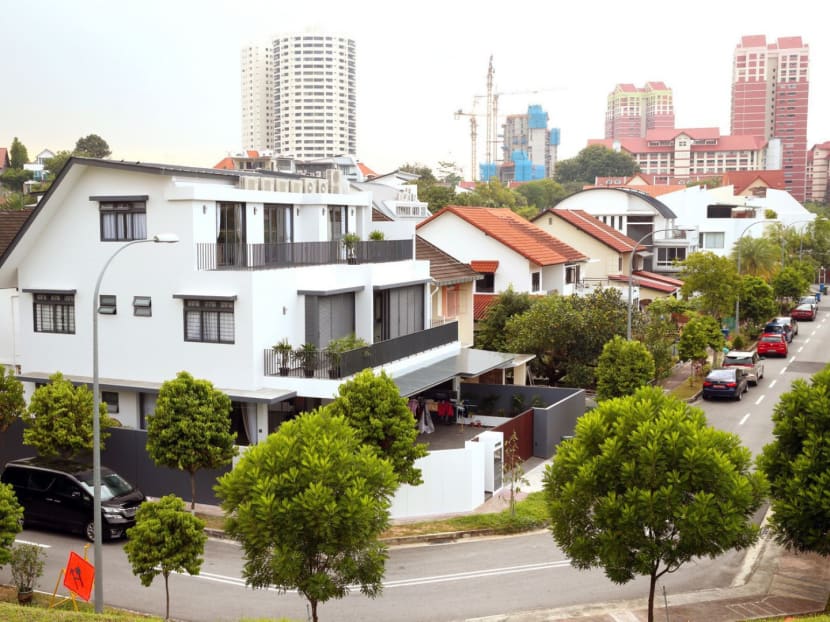Fall in private home prices to continue as supply mounts
SINGAPORE — Private home prices in Singapore have recorded their longest losing streak in more than a decade after another decline in the April-to-June quarter, with analysts saying the downtrend is likely to continue in the months ahead as mounting new supply depresses prices.
SINGAPORE — Private home prices in Singapore have recorded their longest losing streak in more than a decade after another decline in the April-to-June quarter, with analysts saying the downtrend is likely to continue in the months ahead as mounting new supply depresses prices.
The Urban Redevelopment Authority (URA) today (July 24) said private residential prices fell 0.9 per cent in the second quarter this year from the previous three months, in line with its flash estimate published earlier this month and moderating from the 1 per cent decrease in the first quarter.
That marked the seventh consecutive quarter of decline, the worst since the eight straight quarters of price falls from the third quarter of 2000. Real estate analysts said the downtrend came as no surprise as the housing market is still being curtailed by property cooling measures and loan curbs, which restrict purchasing power.
“With the tight financing and regulatory environment, Singapore’s property market remains in the down-cycle. However, the moderate price decline also reflects the resilience of market demand, which is underpinned by a stable economy and strong employment,” said Mr Ismail Gafoor, chief executive of PropNex Realty.
The second quarter’s decline, while moderate, was broad-based, hitting all segments of the private residential property market.
In the non-landed home segment, the Outside Central Region (OCR), or suburbs, registered the largest fall of 1.1 per cent, the same rate as in the first three months of the year. In the Rest of Central Region (RCR), or city fringes, the decline slowed to 0.6 per cent from 1.7 per cent previously. But the price fall in the Core Central Region (CCR), or city centre, accelerated to 0.6 per cent from 0.4 per cent previously. Prices of landed properties declined by 1 per cent in the second quarter, more than the 0.9 per cent decline in the first.
The price weakness came as the vacancy rate climbed to 7.9 per cent in the second quarter from 7.2 per cent in the previous three months amid a rising glut of completed homes. The latest URA data showed there were 25,071 completed but unoccupied private homes at the end of June, up from 22,346 at the end of the first quarter.
Mr Desmond Sim, research head for Singapore and South-east Asia at property firm CBRE, noted that this followed the record number of home sales between 2011 and the first half of 2013. “At that time, there was a surge in land sales and liquidity was cheap… While there may be a lag between the time a project is completed and when occupants take residence of the units, the reality is that the market is still coping with an overwhelming number of completions,” he said.
The impending supply of private homes — which will peak next year with an estimated 25,841 completed units including executive condominiums — is expected to drive the vacancy rate higher, Mr Sim added. This will add pressure on rents, which were down 1.1 per cent in the second quarter, extending the 1.7 per cent decline previously.
Home prices are also expected to continue falling even while sales picked up in the second quarter. Total transactions — which include both primary and secondary sales — rose to 4,104 units from 2,655 previously, URA data showed.
Ms Christine Li, director of research at property firm Cushman and Wakefield, said: “Mass market projects with small overall quanta are more palatable than mid-tier homes with larger overall price quanta.” She added that the price declines will continue to be moderate, at 1 to 2 per cent per quarter, with the property cooling measures in place.
Mr Ravi Menon, the managing director of Monetary Authority of Singapore, said earlier this week that it is still premature to lift the cooling measures, as the price correction from the 2013 high has been modest.







